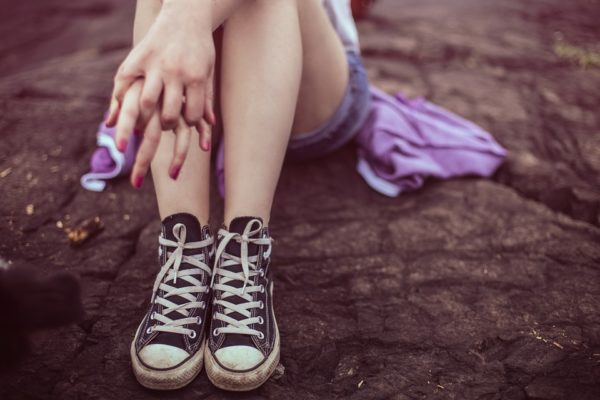In response to the recent walkout conducted by teenagers all over the US, people took to social media to express their opinions. This didn’t surprise me. What did surprise me were the general themes of what I saw in the responses. The very same people who were voicing frustration just days before, following yet another school shooting, were also complaining about how this specific population chose to act on those frustrations. They saw the peaceful protest in commemoration of the fallen and the effort to generate a national conversation about gun violence as ineffective and an immature attempt to skip class.
 I guess that’s what they think kids are into these days. Teenagers are often decried as being obsessed with their smart-phones, social media, and themselves. People condescend to them constantly, telling them their feelings are invalid. Their stress isn’t real. They haven’t been in the “real world” yet. What kind of world are they in, exactly?
I guess that’s what they think kids are into these days. Teenagers are often decried as being obsessed with their smart-phones, social media, and themselves. People condescend to them constantly, telling them their feelings are invalid. Their stress isn’t real. They haven’t been in the “real world” yet. What kind of world are they in, exactly?
According to many people, teenagers don’t have life figured out yet. Well, no. Of course they don’t. Did you?
I know I didn’t. I cringe when I think about that time of my life. I’m sure you do, too. I remember all too well how complicated it was to be a teenager. I was balancing work and midterm exams and relationships with my parents and ever-changing relationships with my friends. I remember wanting to make the right choices and do the right things but finding it challenging to know how. I remember having to rely on people while still trying to become increasingly independent. I remember attempting to navigate all of these areas and define my own identity with courage and confidence when I really lacked both. And I remember people calling me out for lacking the abilities that I also wanted for myself.
Teenagers are the butt of so many mixed messages. They will be criticized for their insensitivity and bullying behavior while at the same time being called a generation of weak “snowflakes.” They’re told to avoid questionable characters for their safety while also being encouraged to walk up to that person who makes them uncomfortable so as to protect themselves from future violence.
They’re compared constantly to the generation before them, which I find ironic because literally every generation was, too.
This isn’t my experience with teenagers. I’ve worked in public high schools for over a decade now. I joke that my closest coworkers are teenagers because I see over a hundred of them daily, while I may not see that teacher cohort down the hall for days at a time. In all of my experience, I’ve learned several truths that are opposed to what I hear in general commentary about “kids these days.”
In my experience, kids these days want to know you genuinely care about them, their safety, and their future prospects. Kids these days want to see models of integrity. Few things frustrate them (or any of us) as much as being told to do something while watching the opposite take place from the people in charge. Kids these days care for one another but often show that care in unexpected ways. When disaster hits close to home, kids these days are the ones who do the legwork in volunteering. Kids these days root for, play with, retweet, work with, and endure one another with considerable aplomb given that they evidently don’t know how according to many. Kids these days act on their rights as citizens in the best ways they know how, oftentimes in spite of not having a model to emulate.
Kids these days are the best part of my job. But they are also an integral part of society. Rather than voicing frustration with them, we can all make it a responsibility to help these kids these days to reach their potential as adults in the coming years.
















